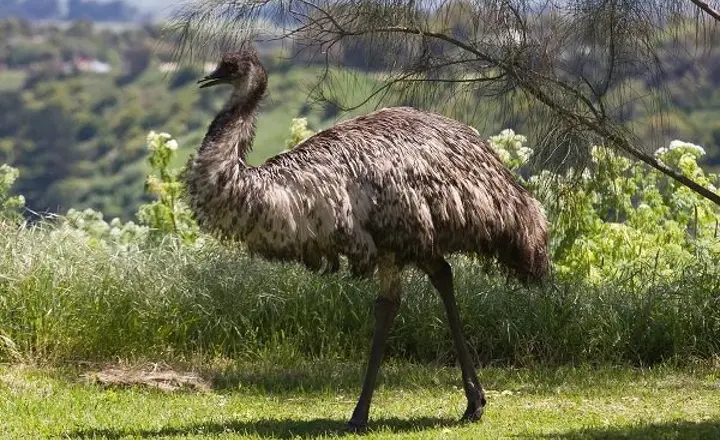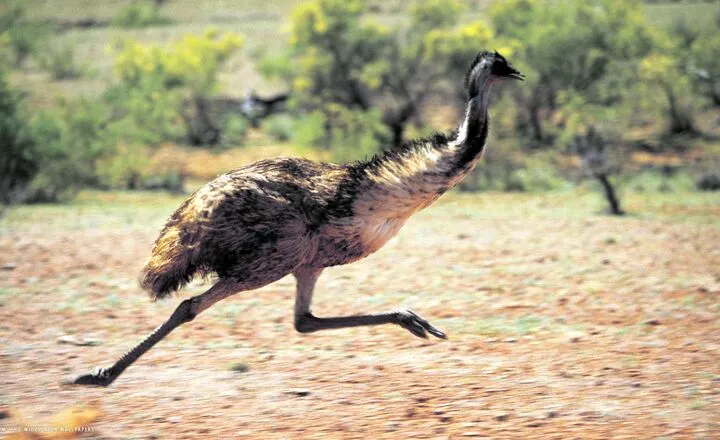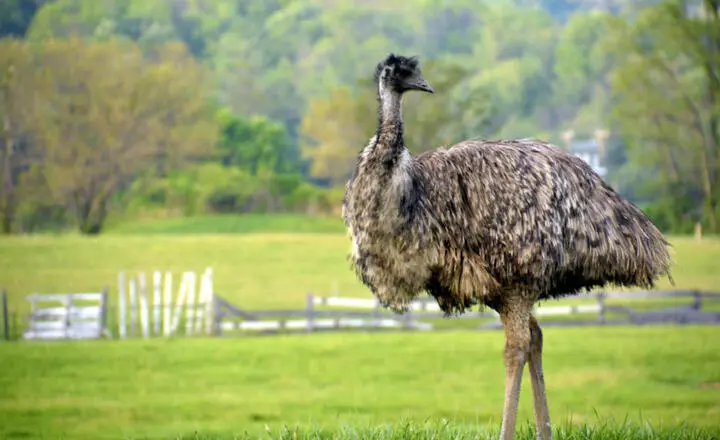In the world of wildlife some creatures capture our fascination more than others. With their towering stature and curious demeanour, Emus have long been a subject of intrigue and admiration.
In recent years, whispers have emerged questioning the existence of these majestic birds. Are emus extinct? This seemingly simple question belies a complex tale of survival, adaptation, and human intervention that has shaped the fate of these unique creatures.
Are Emus Extinct?
Emus are not extinct. These unique and fascinating birds are still very much alive and thriving in various parts of the world.
Despite facing habitat loss and hunting challenges, Emus have managed to survive and continue to exist in the wild. While they may not be as commonly seen as some other bird species, efforts are being made to protect and conserve their populations.
Emus play an important role in their ecosystems, contributing to biodiversity and serving as a key part of the food chain.
Conservation initiatives are helping to ensure that these magnificent birds remain a part of our natural world for generations.
Tasmania and King Island Emus
The extinction of the Tasmanian and King Island emus serves as a poignant reminder of the impact of human activities on vulnerable species.
The Tasmanian emus never had the opportunity to establish themselves as a distinct subspecies before falling victim to extinction due to the introduction of dogs.
The King Island emus faced pressures from hunting and fires caused by early settlers, leading to their disappearance in 1822. These cases highlight the delicate balance between human development and conservation efforts in preserving biodiversity.
While these two subspecies are now extinct, it is crucial to recognise that other emu species and subspecies still exist today.
By learning from past mistakes and implementing effective conservation strategies, we can work towards protecting these remaining populations from a similar fate. The loss of the Tasmania and King Island emus is a stark warning about the fragility of our natural world.
It underscores the importance of proactive conservation measures to safeguard endangered species for future generations.
Emus are Everywhere, how can They be Listed as Extinct?
It may seem like emus are abundant and widespread, but the classification of a species as extinct is not solely based on their current population distribution.

The term extinct refers to a species no longer existing in the wild or in captivity. Despite the presence of emus in various countries, their population numbers have been declining due to factors such as habitat loss, hunting, and climate change.
The classification of a species as extinct takes into account various factors, including population trends, genetic diversity, and reproductive success.
Although emus can be found in different parts of the world, their population numbers have decreased over time.
Emus are Not Even listed as Endangered yet
With large-scale hunting, emus are not listed as endangered because their population numbers are still relatively healthy.
A species must typically have fewer than 250 mature individuals worldwide to be classified as endangered. Emus have managed to maintain a stable population size, allowing them to avoid being placed on the endangered species list.
While emus may not be as common as some other bird species, they can still be found in zoos and in the wild and even kept as pets in some cases. This widespread presence contributes to their not being listed as endangered or extinct.
Emus are Also not in the Danger Zone
It is the second-largest bird in the world, and is currently not considered to be in the danger zone. With an estimated population of around 630,000 mature emus in captivity and the wild, they are classified as being of least concern.
This means that emus are plentiful and thriving in their natural habitats, with no immediate threat of endangerment or extinction.

The fact that there is a significant number of emus in the wild indicates a healthy population and stable ecosystem for these unique birds.
With challenges such as habitat loss and climate change, emus have managed to adapt and continue to flourish.
Their status as the least concern is a positive sign for conservation efforts to preserve these fascinating creatures for future generations to enjoy.
Have Emus Stopped Existing?
It has not stopped existing. They are native to Australia and can still be found in the wild in various parts of the country.
They are known for their large size, distinctive appearance, and unique behaviors such as their loud calls and fast running speeds. Emus are also commonly kept in captivity in zoos, farms, and wildlife parks around the world.
It plays an important role in Australia’s ecosystem and cultural heritage, like the Ostriches sprawling plains. They are considered a symbol of the country’s wildlife and are protected under conservation efforts.
While they may not be as commonly seen as other animals, emus continue to thrive in their natural habitat and contribute to the biodiversity of the Australian landscape.
Did we lose all Emus in The War?
Wo, we did not lose all emus in the war. The Emu War, which took place in Australia in 1932, resulted in the deaths of around 20,000 emus out of an estimated population of hundreds of thousands.
With the use of nearly 10,000 bullets by the Australian military during the conflict, the emu population was not wiped out.

The Emu War is often remembered as a humorous and unsuccessful attempt by humans to control the emu population, as the birds proved to be agile and challenging targets for the soldiers.
While it did result in some casualties among the emus, it did not lead to their extinction or even a significant decrease in their overall numbers.
Conclusion
While emus were once threatened with extinction due to human activities and habitat loss, they have remarkably recovered in recent years. Efforts to protect their habitats and regulate hunting have allowed their populations to thrive once again.
By raising awareness about the importance of preserving emu populations and supporting conservation initiatives, we can help prevent them from ever facing the threat of extinction again.
FAQs
Are there emus in New Zealand?
There are no emus in New Zealand. Emus are native to Australia and are not found in the wild in New Zealand. The climate and habitat in New Zealand are not suitable for emus to thrive, as they prefer drier and more open environments like those found in Australia.
Is an emu a kiwi?
An emu is not a kiwi. Emus and kiwis are flightless birds native to different regions of the world. Emus are found in Australia, while kiwis are native to New Zealand.
Can you eat emu eggs?
Yes, emu eggs are edible and can be consumed by humans. Emu eggs are known for their large size and rich flavor, making them a popular choice for those looking to try something different.
